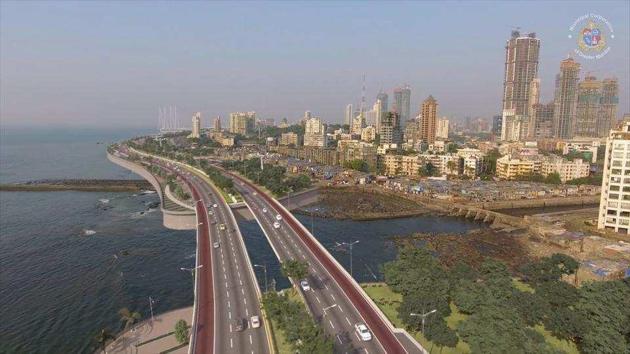Civic budget talk: Coastal Road a misplaced priority?
Pavements do not get prioritised in the BMC’s tasks lists perhaps because its movers-and-shakers do not use them
The Brihanmumbai Municipal Corporation (BMC) budget presented this week is a good indicator of how politics directly affects governance and administrative priorities. The Rs 33,441crore budget, equalling the size of nearly eight Indian state budgets, makes two laudatory and unnecessary references to chief minister Uddhav Thackeray and prioritises allocations to big-ticket projects that his party, Shiv Sena, has backed in recent years. This includes the grand and super-expensive Mumbai Coastal Road project for which municipal commissioner Praveen Pardeshi set aside Rs 2,000 crore in the budget.

The allocation, when seen in the context of the civic body’s finances, begins to tell a story of misplaced priorities. It is a massive 25% increase from last year’s budget at a time that the BMC, by its own admission, is facing a severe cash crunch and proposes to earn a few hundred crores by regularising misused spaces in residential and commercial complexes. It comes at a time that the civic body explored “innovative” income-boosting measures such as 5% increase in birth certificate fees and vendor licences. It comes at a time when the BMC has slashed the meagre Rs 100 crore budget (2019-20) for pavements by half and delegated the critical infrastructure issue to the wisdom of assistant municipal commissioners in every ward.
This is at the crux of how Mumbai’s needs are evaluated, projects prioritised, and allocations made: the Coastal Road is somehow sold to the city as an urgently necessary piece of infrastructure and public money diverted to what will essentially serve a section of private car owners and cab users while pavements which see upwards of a staggering 15 million walking trips in a day are not seen as vital or critical infrastructure that they actually are. Studies through the last ten years have shown that the largest group of commuters killed on Mumbai’s streets are pedestrians; one study put the figure at a whopping 78%.
Pavements either do not exist in large parts of the city – the tony south Mumbai and high-end townships like in Powai are exceptions – or are improperly and dangerously laid out or have been occupied by various players of the city’s informal economy and now increasingly are used by two-wheeler riders to dodge traffic on streets. But pavements do not produce the excitement that the Coastal Road or a similar big-ticket show-sha project does, pavements do not get prioritised in the BMC’s tasks lists perhaps because its movers-and-shakers do not use them, pavements are not even discussed as necessary infrastructure but merely as an afterthought to a road.
The Coastal Road, though, is a different ballgame. The nearly 35-kilometre eight-lane freeway running the length of the city on its western coast, proposed as a panacea for the monumental traffic congestion issues in the city, will be simply the most expensive piece of infrastructure built in Mumbai. Only the 10-kilometre stretch at the southern end is estimated to cost Rs 12,900 crore -- that’s a stupendous Rs 1,300 crore per kilometre or between 1.5-2 times the cost of Mumbai’s expensive underground metro now being constructed -- but, by the BMC’s admission in the Supreme Court, will carry around 60,000 cars a day which is less than two per cent of the city’s traffic. How exactly is it supposed to solve Mumbai’s monumental traffic problem?
There are tens of reasons ranging from social to economic and health to show why the Coastal Road is not what Mumbai urgently needs; the most pressing of these would have to be the environmental one. Roughly half of the length of the Coastal Road is planned on land reclaimed from the sea. This, it is easy to appreciate, fundamentally changes the topography of Mumbai and its relationship with the sea. Studies of Climate Change crisis and rising sea levels have already placed Mumbai in a high-risk category alerting that large parts of its western and eastern coasts could be submerged by 2050. Reclamation makes the city more vulnerable to flooding, besides there is little in the Environmental Assessment Report to show that planners have correctly estimated sea level or budgeted for the rise in sea level.
All this begs the question: Why are the Thackerays so keen on the Coastal Road especially when Aaditya Thackeray stood against the decimation of thousands of trees in Aarey, has spoken in favour of environmental issues, and now heads the state’s environment department?
It goes without saying that a large majority of Mumbaiites will be better served if the civic body were to re-allocate the Coastal Road funds to roads and pavements across the city. And the city itself may be better placed to face climate change disasters.




